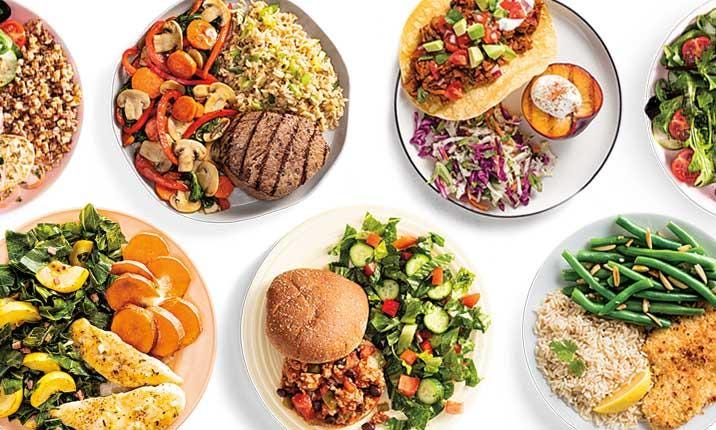A properly designed and digested meal should provide you with steady energy that lasts 4-5 hours on average. If you find yourself yawning or getting sleepy or having some gastrointestinal discomfort following a meal, that is your body’s signal that something is not working properly.
I identify two main causes of low energy following a meal. The first is due to poor blood sugar regulation. If you feel especially sluggish or sleepy following a high carbohydrate or sugar meal, you might be experiencing a situation which, in its extreme, is sometimes referred to as “carb coma”. I experienced a version of this a couple of decades ago when I was taking a course that required us to manipulate our carbohydrate-protein-fat ratios and then note the effects various combinations had on our energy and general sense of well being. The high carb meals or snacks may give a quick (but short) burst in energy, but definitely not lasting or sustained energy. Remember that carbohydrates turn into sugar. When you eat a meal or snack that is carb (or sugar) heavy, that sugar gets absorbed quickly into the bloodstream resulting in a “sugar high”. But then insulin gets released to deal with that unhealthy state of high blood sugar. With a repeating pattern of this, the insulin surge can drive blood sugar levels too low (“hypoglycemia”), resulting in symptoms like fatigue, irritability and poor concentration. In extreme cases, you may feel an irresistible urge to take a nap or even faint, as I first observed years ago with one of my clients. She was a woman in her 20’s who worked in her family’s Italian restaurant. Her father seemed to be a rather hard task master and wanting to please him, she worked long hours with only snacking on a bit of high carbohydrate Italian food that she could quickly eat (bread, pizza, pasta). Her father actually brought her to her appointment with me and said that she kept “falling to the floor” while at work. Once she developed the habit of eating a breakfast and lunch that contained protein and fat with low carbohydrate vegetables, this behavior stopped and she reported feeling stronger and healthier. (I had another woman client, years later, whose husband reported that she kept “dropping” during the day. This woman had an extremely low vitamin D level. The “dropping” stopped when we raised her vitamin D level with supplementation - but that story really belongs in an article on vitamin D).
I repeat, a properly designed and digested meal should provide you with steady energy that lasts 4-5 hours on average. If you find yourself inappropriately sleepy or sluggish during the day, despite fairly good sleep, look to the protein-fat-carb ratios of your meals and snacks. Decrease the sugar/starch component and add protein, quality fat and some high fiber/low carbohydrate vegetables.
The second most common reason is probably because you’re having difficulty digesting what you just ate. Digestion is the process of breaking down food by mechanical and enzymatic action within the upper portion of the GI tract (mouth, stomach, small intestine) into substances that can then be absorbed and used by the body. If you are not experiencing solid, sustained energy for at least 3-4 hours following a meal that has good protein/fat/carb ratios as discussed above, it may be that you just ate a meal that you could not properly digest. Either too much food at one time (note that digestion, like many other bodily processes, becomes more difficult with aging), or some specific food that is particularly difficult for you to digest. You may be aware that you have a food sensitivity or intolerance to certain foods, but since poor or incomplete digestion is usually a causative factor in the development of food sensitivities, it still goes back to difficulty with digestion.
Approaches that you can try to improve your ability to digest food.
Ensure that you are having good bowel elimination daily. If the bottom end of the digestive tract is somewhat blocked, the upper end (where digestion occurs) will ultimately not function properly. The reverse is also true. Poor or incomplete digestion can be a contributing cause to constipation. Improving your digestion may correct your constipation problem.
Eat slowly, chew thoroughly. In order for proper digestion to occur a little farther down in your digestive tract, it is necessary for your teeth to have ground down your food into, ideally, a paste form before swallowing. This can take 20-30 chews per mouthful. Are you doing anything close to that?
Decrease the total amount of food eaten at a meal. Many of us are eating way more food (often of poor quality) than we need. You may be overfed - and undernourished.
Try using food combining rules: eat fruit by itself, don’t eat animal protein (meat, poultry, fish, eggs) with starches (breads, potatoes, rice, etc). This approach alone has helped many of my clients, although it is not a popular solution - no steak and potatoes, no hamburgers on buns. Fortunately, if other steps are taken to improve the diet and digestion function, the need to food combine in this way can be eliminated.
You may have insufficient stomach acid - very common in my experience. Acid is important and necessary for several reasons:
It activates certain enzymes and begins protein digestion within the stomach.
It provides a signal to the small intestine that food can leave the stomach and is ready to travel to the small intestine for further processing.
It plays a vital role in releasing and facilitating the absorption of vitamin B12.
It plays a major role in killing harmful bacteria and pathogens ingested with food, preventing infections within the GI tract.
Try drinking 1 teaspoon of unfiltered apple cider vinegar (it should look cloudy in the bottle) in a small glass of water before each of your two largest meals of the day. You can gradually increase up to 1 tablespoon if needed. The acid in the vinegar can supplement your own, frequently insufficient, amount of hydrochloric acid (HCl) which is such a necessary component of the digestive process. I think close to 100% of the people to whom I’ve recommended this have reported major decrease in various GI symptoms (and subsequent increase in energy) after implementing.
Take digestive enzymes with your meals. One (sometimes two) capsules of the right enzymes taken at the beginning of each meal can be very helpful for a period of time while you’re taking other steps to improve your ability to digest food.
Probiotics, the beneficial bacteria that should be living (in balance and harmony) within our digestive tract, taken as a supplement can be very helpful for some individuals. Many people have major problems with an imbalance of these organisms. You might need the advice of a healthcare professional who specializes in digestive system function to recommend a specific product (same is true for digestive enzymes).
Eliminate or markedly reduce the amount of refined, processed, fast food in your diet. Poor quality fats are often present in these foods and they (and other ingredients) can be very difficult to digest as well as be irritating to the lining of your GI tract.
Remove dairy, wheat, and soy from your diet for a minimum of three weeks and see if your symptoms decrease. The modern versions of these foods are very difficult to digest and are causing problems for many of us. This may not need to be a lifelong requirement if steps are taken to improve the overall function of your digestive system.
Choose organic and non-GMO foods as much as possible. Heavy pesticide use and genetically modified foods are a causative factor in digestive system problems as well as problems within all other parts of the body.
If you have difficulty implementing these suggestions, consider working with a nutritionally-oriented healthcare professional who can help sort out your particular imbalances.



